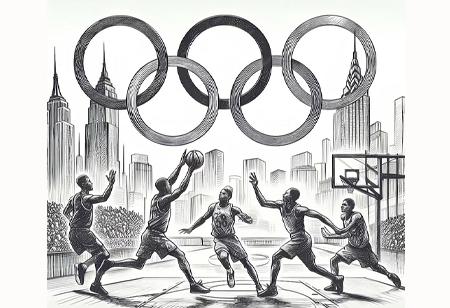The Historical Facts of Olympics One Should Know
The Olympics began in ancient Greece in 776 BCE with a solo event, a sprint race without shoes called stade. Sprinters run over 192 meters, likely in the nude, to win a garland and local acclaim. Held in Olympia, the Games honored Zeus and were part of a broader tradition of Greek sporting festivals. Named after Mount Olympus, the home of Greek gods, the games originally celebrated every four years, known as Olympiad. Over time, additional events like boxing and chariot racing were initiated, making the Games progressively popular in Greece. However, support decreased after Greece fell under Roman control in the 2nd century BCE, and the Games were eliminated around 394 CE due to their pagan associations.
After a 1,500-year hiatus, the Olympics were reintroduced by French educator Pierre baron de Coubertin. In June 1894, Coubertin suggested the reestablishment of the Games at a conference in Paris, and the modern Olympics were initiated in April 1896 in Athens with 14 national teams. Winter sports were added in 1924, with both Winter and Summer Games occurring in the same year until 1994, when a two-gap between them was accepted, a schedule that continues today.
The Ancient Olympics were expressly Greek, but now over 200 national Olympic Committees from around the world participate. The Games' popularity has arised, with over three billion viewers watching the Summer Games from 2008 to 2020, indicating the enduring global appeal of the Olympics.
Controversies
The Olympic movement inspires to create a “peaceful and better world” by encouraging “Friendship, solidarity, and fair play”, however that’s not been possible without such controversies. The Games have faced multiple boycotts in 1976, 29 countries, mostly African, boycotted the Montreal Olympics due to the IOC’s decision to allow New Zealand, which had recently toured apartheid-era South Africa, to compete. The biggest boycott happened in 1980 when over 60 countries led by the United States refused to join in the Moscow Games to march against the Soviet Union’s invasion of Afghanistan.
The most important doping offense involved Russia’s state-sponsored program, which was banned from 2011 to 2015 and numerous Olympics sports were affected. In 2019, the World Anti-Doping Agency (WADA) imposed a four year out of Olympics for Russia, after the Country’s doping agencies have buried the data and somehow officials managed to find it out. Although the Court of Arbitration for Sport (CAS) lessened the ban, Russian athletes took part as the Olympic Athletes from Russia (OAR) at the 2018 Winter Olympics and as the Russian Olympic Committee (ROC) participated at Tokyo 2020, without the Russian flag or anthem.
Politics has also dominated the Olympics in a such a way that, In 1936 Berlin Games were enslaved by Nazi propaganda, the 1968 Mexico City Games comes through a destructive military eradication on students protest and an objections by the athletes John Carlos and Tommie Smith, and the 1972 Munich Olympics were ruined by the Munich slaughter, where Palestinian militants killed 11 Israeli Athletes. Additionally, the 1996 Atlanta Olympics were contaminated by a bombing at Centennial Olympic Park, committed by Eric Rudolph, which killed one and injured over 100.
Olympics Rings Symbolize
The Olympics rings are interconnected to portray the togetherness of the world through sport. As Pierre de Coubertin, the founder of the Olympic Movement, said, the ring stands for the union of five occupied continents: Africa, America, Asia, Europe and Oceania. Their contiguous design represents the comprehensiveness of Olympism and emphasizes how athletes from across the globe come together to participate in the Olympic Games. The Original motto, “Citius, Altius, Fortius” translates from latin to English “Faster, Higher, Stronger”. The spirit of the Games, highlighting the hunt of greatness and the continuous attempt for the improvement in Athletic performance.
“These five rings represent the five parts of the world now won over to the cause of Olympism and ready to accept its fecund rivalries. What is more, the six colors thus combined reproduce those of all nations without exception” - Pierre de Coubertin
To conclude, the Olympics Games personify the spirit of global unity and athletic excellence, transcending borders and cultures through the universal languages of sports. Celebrating the ideals of competition, perseverance and companionship, the Games serve as a powerful reminder of what humanity can achieve when coming together. Each edition of the Olympics showcases extraordinary feats of human strength and spirit, motivating millions to aspire for greatness. As Athletes from around the world gather to compete and celebrate, the Olympics continue to remind the value of mutual respect and shared aspirations, fostering a sense of global community and hope for a successful future.
🍪 Do you like Cookies?
We use cookies to ensure you get the best experience on our website. Read more...






